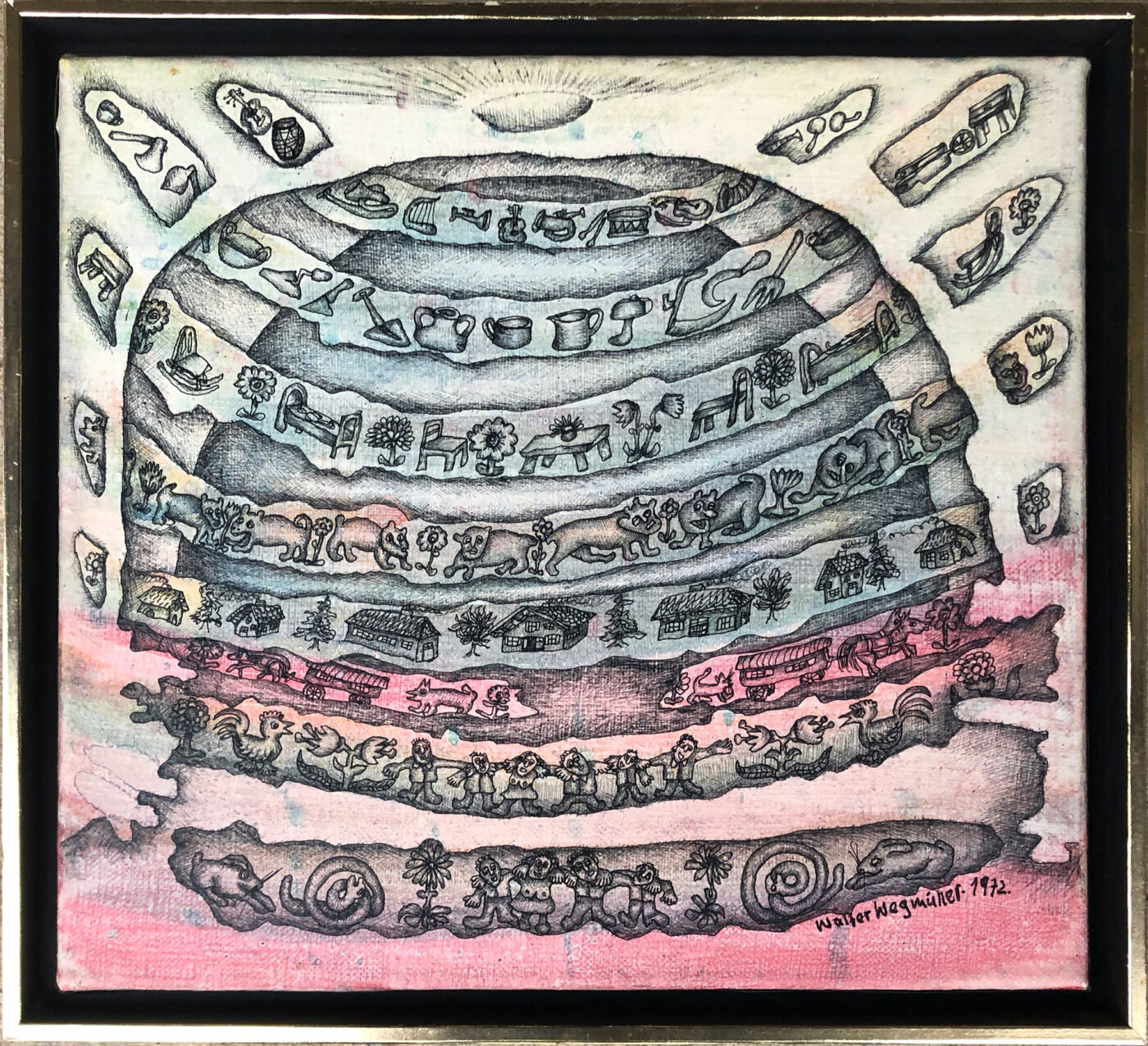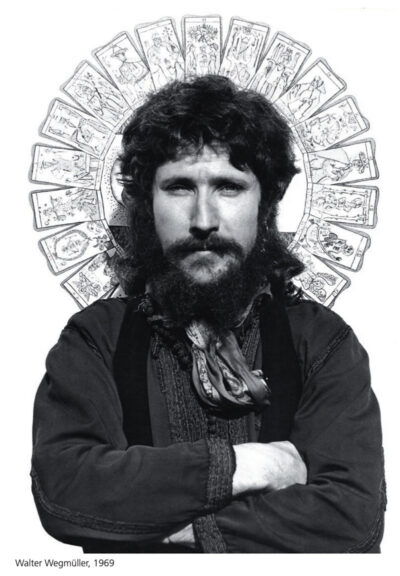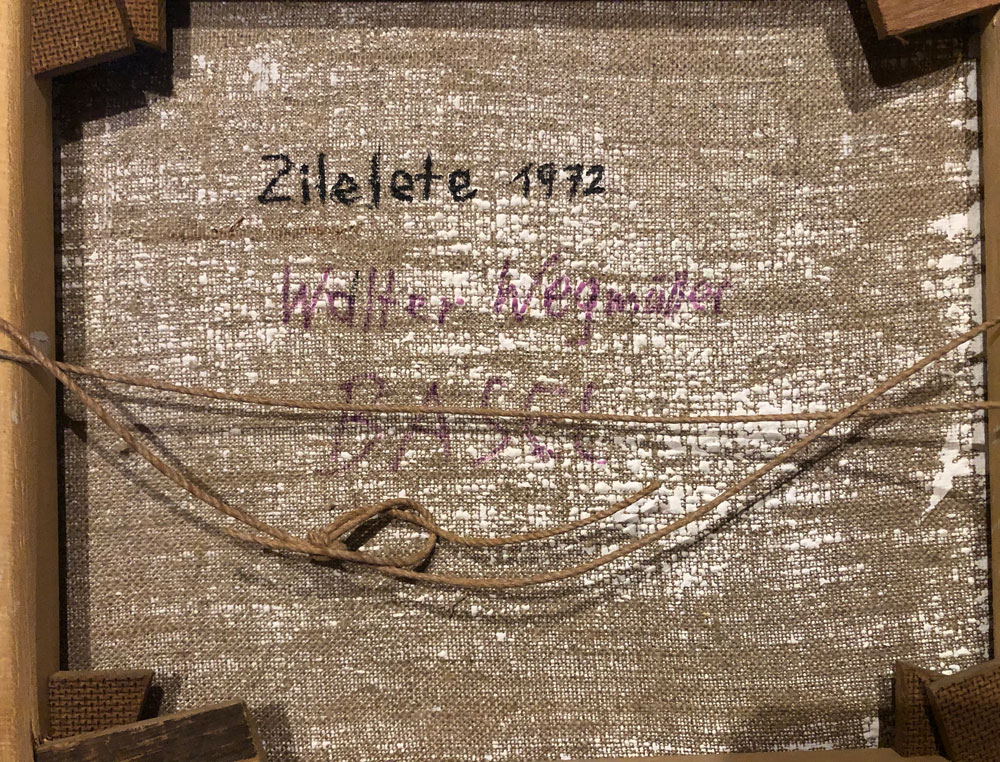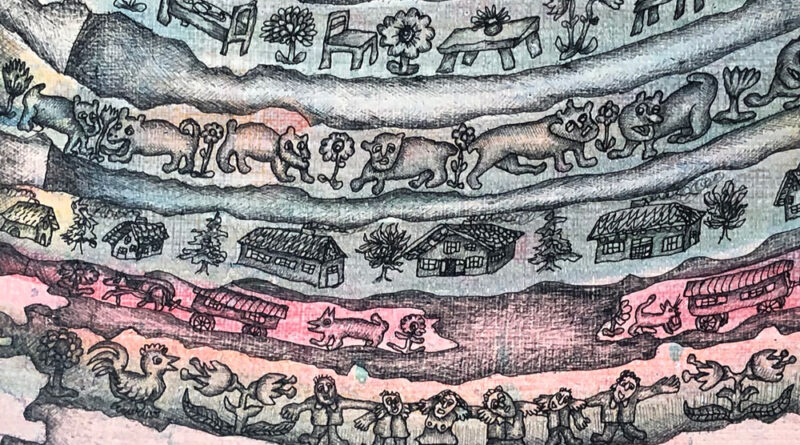Walter Wegmüller – Zilelete 1972
Charming work by the Swiss artist Walter Wegmueller, dated 1972 and titled Zilelete, possibly based on the Romanian for “Your Days.” The images of farm tools, musical instruments, animals and chalets are arranged in a beehive-like form, and also evoke the traditional pattern of “Poya” scenes of Swiss cattle descending from alpine pastures. They appear as a distillation of memories from Wegmueller’s difficult childhood as foster child working on farms in the region around Bern.
Dimensions: 33 x 30 cm

Feb 25, 1937 - March 26, 2020
Also known as: Walter Wegmueller
 The Swiss artist Walter Wegmueller grew up on a farm near Bern as a “Verdingkind*” These were foster children forcibly removed from parents care because they were orphans, impoverished or belonged to a group such as the Jenish travelling people, as was the case with Wegmueller’s mother.* It was a difficult childhood, but the local customs, relationship to animals and nature and the folklore he absorbed on the farm in his youth enriched the symbolism of Wegmueller’s work as an artist throughout his life.
The Swiss artist Walter Wegmueller grew up on a farm near Bern as a “Verdingkind*” These were foster children forcibly removed from parents care because they were orphans, impoverished or belonged to a group such as the Jenish travelling people, as was the case with Wegmueller’s mother.* It was a difficult childhood, but the local customs, relationship to animals and nature and the folklore he absorbed on the farm in his youth enriched the symbolism of Wegmueller’s work as an artist throughout his life.
Wegmueller studied in Basel, Bern, Paris and London, and began his artistic career in Bern and was a cofounder of the Kunstfests der velausten Voegel (“Art Festival of the Lousy Birds”) and of the artist’s group Farnsburggruppe. Not just a painter and sculptor, Wegmueller engaged across a wide spectrum of the arts including film and music. Among other collaborations, Wegmueller worked and exhibited with H.R. Giger (the artist responsible for the visual design of the film Alien).
Interested in mysticism, and inspired by exploration of his Roma and traveller roots, Wegmueller found his most widespread fame in the design of several unique sets of Tarot cards. His friend Timothy Leary helped arrange for Wegmüller to album on the theme of tarot which was released in 1973, with an elaborate package that included a set of Wegmüller’s cards. Wegmüller recites stories about each of the tarot cards on the album, which also contains lengthy instrumental passages.
An activist politically, he co-founded an umbrella organization for Swiss Jenisch and Roma, the Radgenossenshaft der Landstrasse.
- From the 1920s until the 1970s, the Swiss government often institutionalized Yenisch parents and sent their children – Verdingkinder – to be adopted by the non-itinerant Swiss, often by farmers who used them as indentured child labor. The name of this program, was Kinder der Landstrasse (“Children of the Road”). There are an estimated 30,000 Yenisch people in Switzerland, some 3000 of whom maintain a nomadic way of life.


